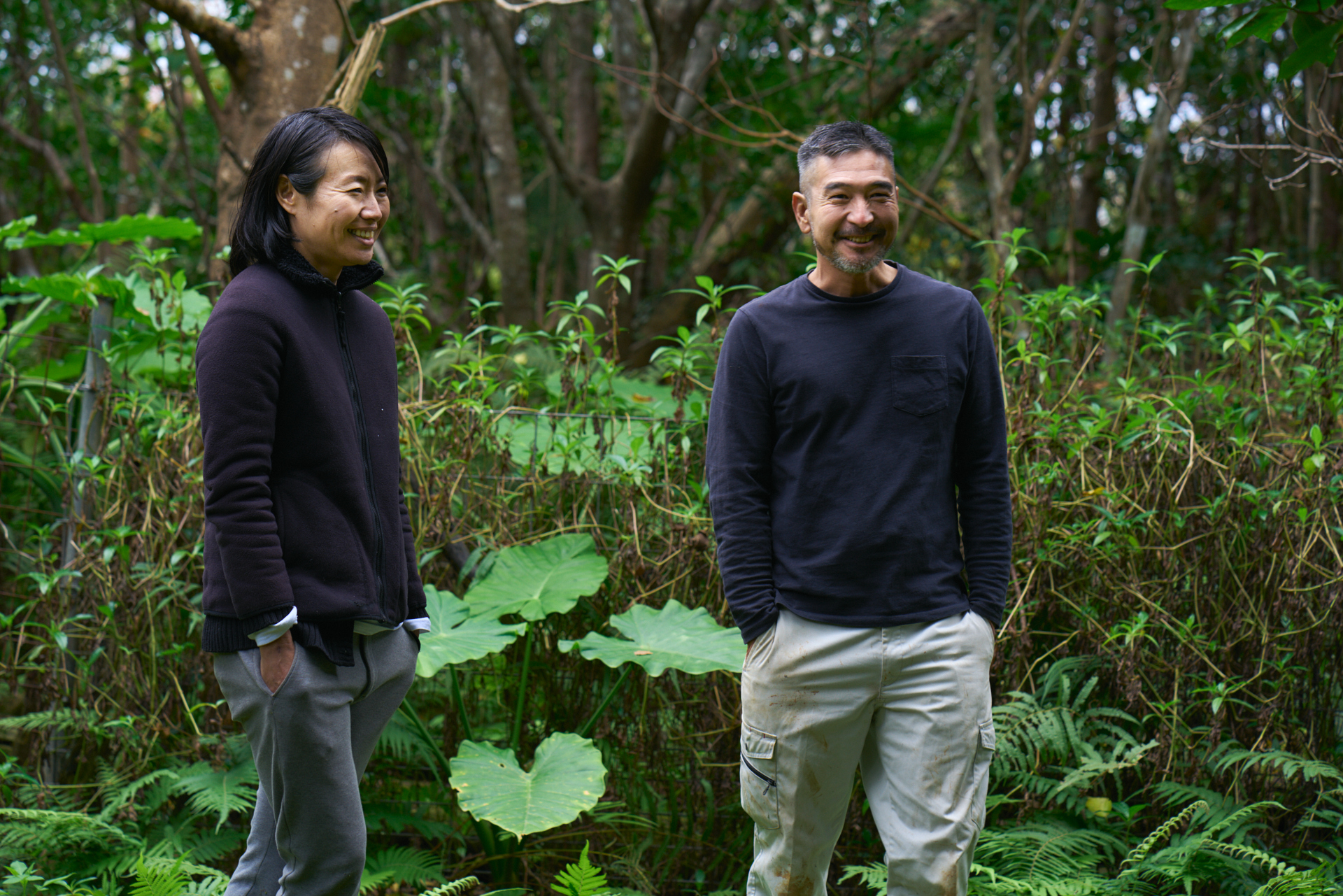Coffee is one of our favorite shikohin products. However, in Japan we must rely on imported coffee to satisfy this popular luxury.
We learned of certain “dots” who are growing coffee in Japan and exploring new shikohin experiences in Okinawa, so we paid a visit.
The northern forest region of the main island of Okinawa is known as Yanbaru. The kanji character for Yanbaru is “mountain plain” and as the characters implies, the region is surrounded by lush mountains, forests and grasslands. The sheer scale of nature here is almost overwhelming.
The forests are a treasure trove of rare plants and animals including the Yanbaru Kuina, and it is one of the most biodiverse regions of the world. In 2021, this region was designated as a World Heritage Site.
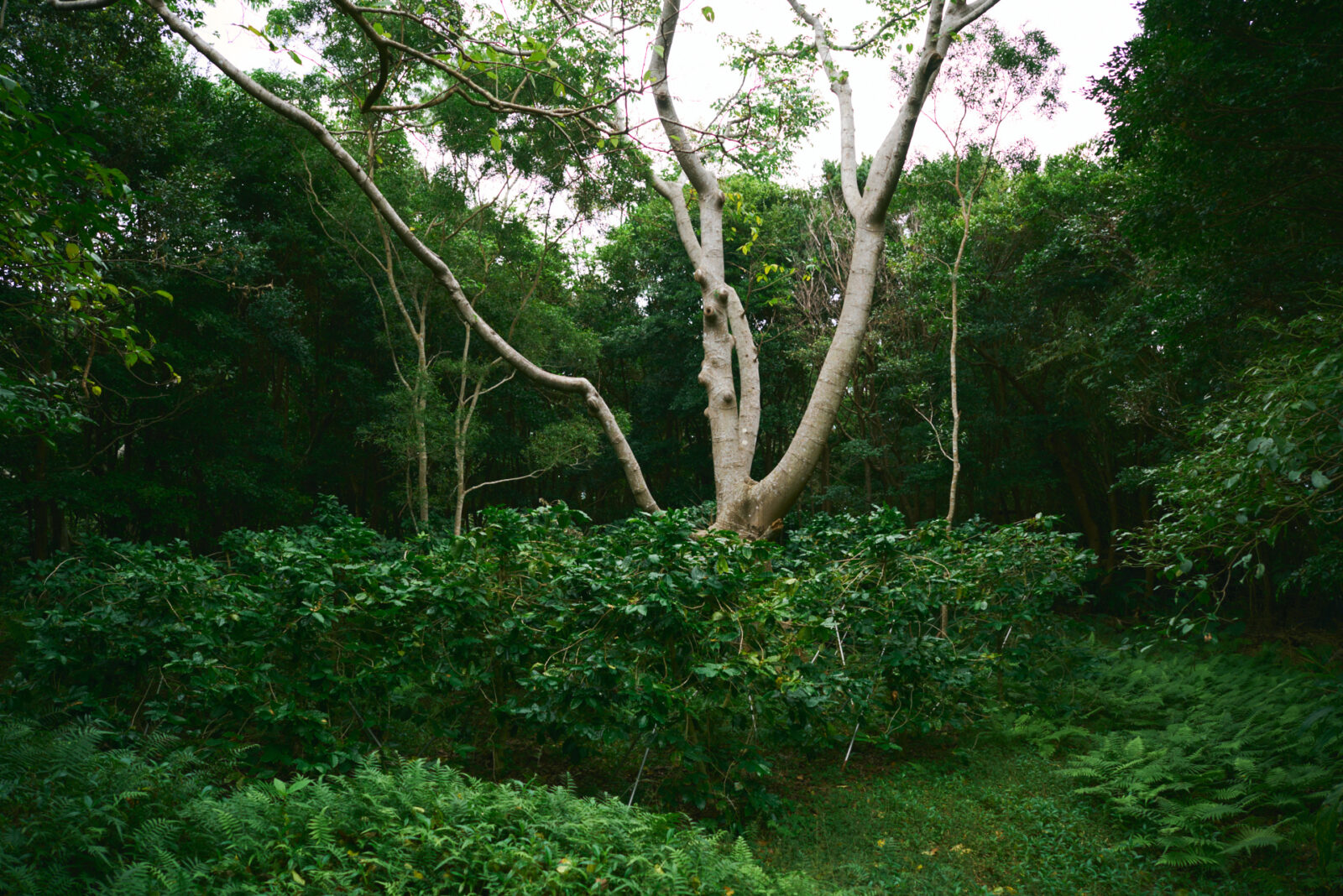
Deep in the mountains of Yanbaru, in the village of Kunigamison Ada, ADA FARM is a coffee farm that coexists with nature. The owners of the farm are Yasujiro and Yuko Tokuda.
Their farm is the first in Japan to be certified as a specialty coffee farm, yet the couple’s vision goes further.
They shared with us their love and respect for the land and nature, their passion for coffee that led them to their current path, and the ever growing popularity of Okinawan coffee culture.
ADA’s coffee “No.3” is 2300 yen per serving and should be enjoyed slowly, or in about 7 minutes
“The coffee has a delicate and clear flavor, like a fine broth. It is easy to drink it up quickly, but take your time and spend about seven minutes drinking it.”
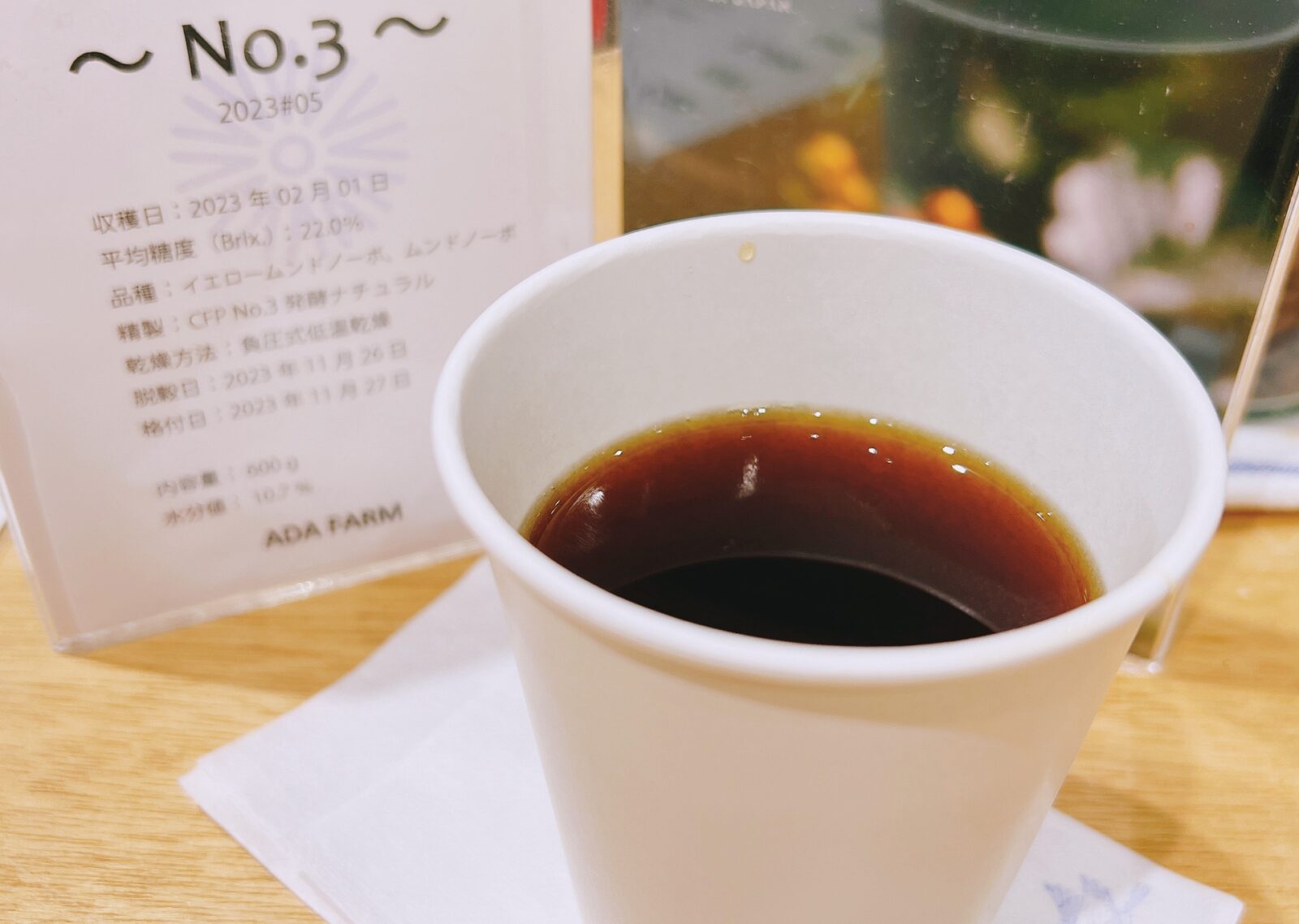
Sachiko Tsuji is the owner of a small coffee shop called “Hibariya” in Naha. About one month before I visited Okinawa to do this article, I tasted ADA coffee’s “No. 3” for the first time when Sachiko brewed it for me and explained how it should be savored.
Indeed the coffee was soft and smooth on the palate and I was tempted to gulp it down at once, but I contained myself and waited a while.
As I waited, the flavor began to change. The complexity gradually increased into a rich, creamy and colorful flavor of tropical fruits like banana and lychee.
Tsuji said that it is like atemoya, a common fruit in Okinawa.
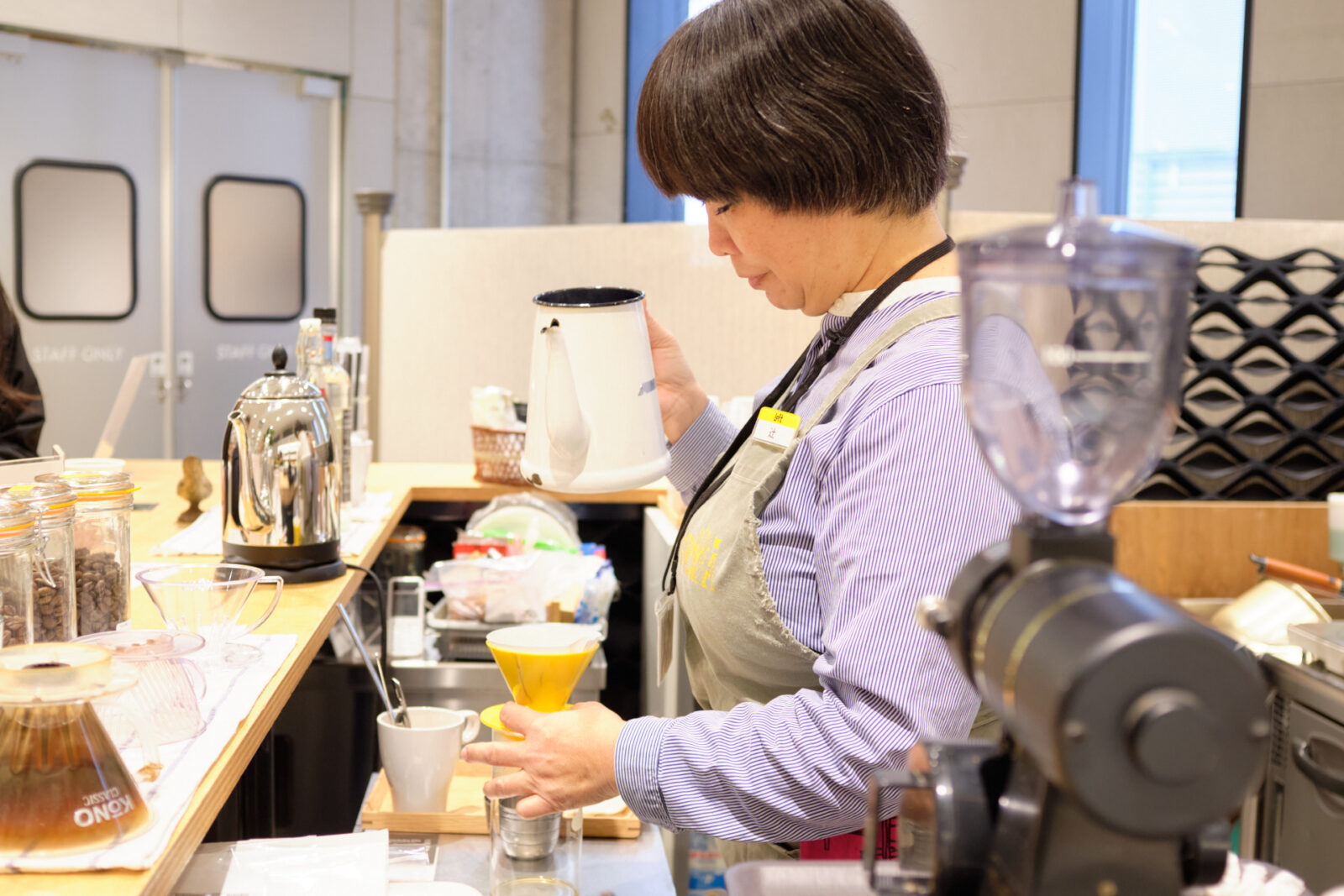
“These coffee beans are really shy, so it is better to take your time to savor it. The aroma that it leaves lingering in the cup is wonderful as well.”
Tsuji enthusiastically continued to explain and talk about the coffee.
It got me curious as to what kind of farm ADA FARM was. I could almost see the coffee fruits growing in the fields before my eyes as I drank the coffee and my excitement swelled inside me.
“I never thought it was possible”
The path to starting a coffee farm in Okinawa
After much anticipation, I made my trip to ADA FARM and visited the Tokudas at their farm in the Yanbaru forest.
Yuko shared, “When we moved to Okinawa 17 years ago, I did not imagine that we would start a coffee farm. Of course, I like coffee but I did not know that coffee could be grown here.”
Both Yasujiro and Yuko Tokuda are from Tokyo. They had a strong respect for nature and a growing sense of anger and rebellion toward modern society and they found themselves drawn to life in Okinawa.
They started out by growing papaya trees but wanted to do something that “triggers excitement in people” and came across coffee trees.

Yasujiro shared, “I didn’t want to make something touristy or promote our product as simply “made in Okinawa”. It would be a shame if people say “it’s a rare specialty, but it doesn’t taste very good.” I wanted people to want to drink our coffee because it tastes good.”
When they started the coffee farm in 2008 Yasujiro says that “no one was interested in what we were doing.”
They roasted the harvested beans themselves and took them to various leaders and specialists of the coffee industry. Although they were all supportive, they did not give very positive feedback in regard to the quality of the coffee beans.
“Deep down I felt frustrated (laughs). I wondered why Okinawa could not be a top coffee producing region and really thought about how we should proceed. I understood that there were many clear hurdles to overcome and it gave me an opportunity to reflect calmly on the issues we faced.”
“We became determined to work hard and work with the nature on this land to produce raw coffee beans that really express the unique characteristics of this land.” (Yuko)
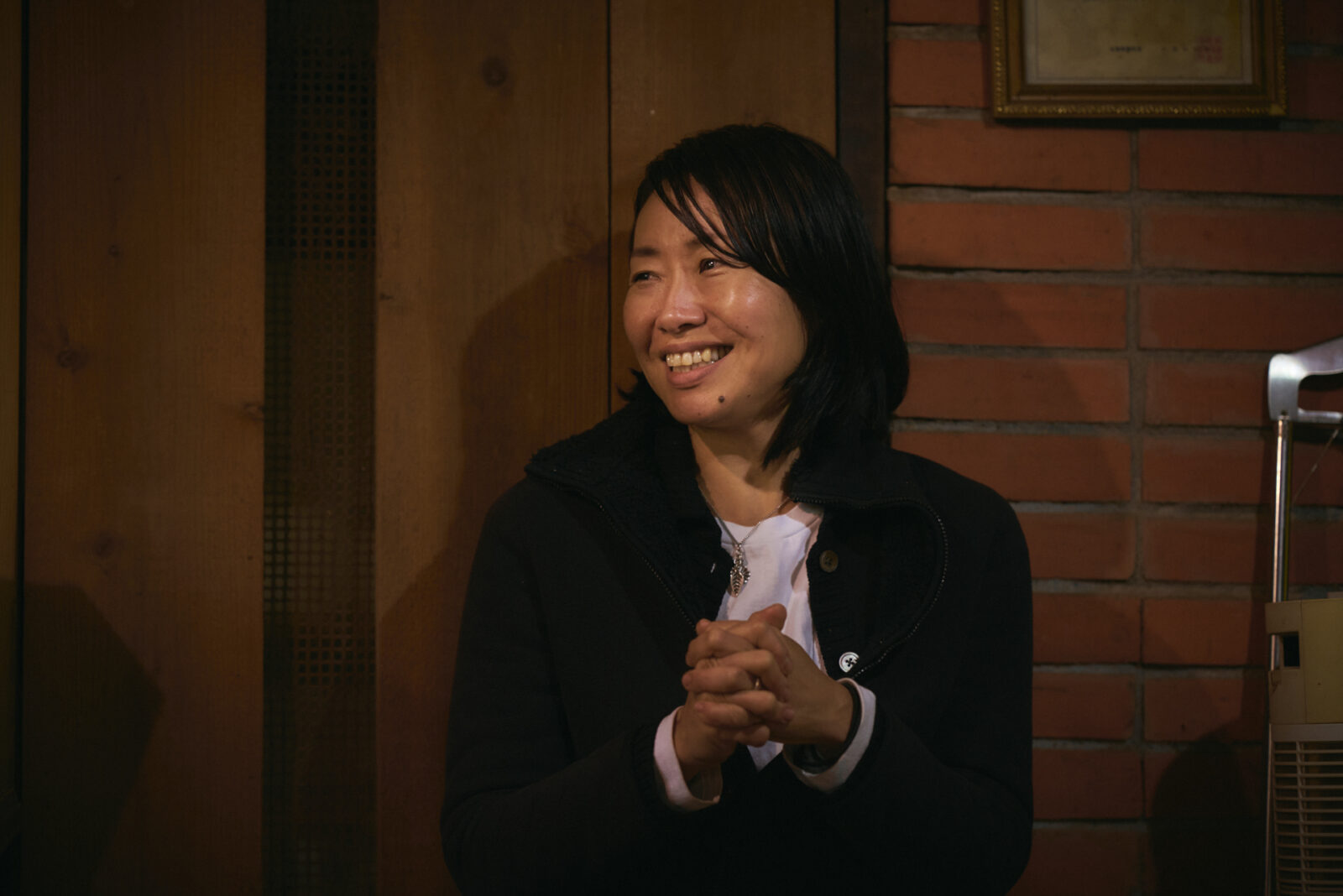
Becoming Japan’s first certified specialty coffee and a ray of hope for young farmers
The couple looks back and says, “We were lucky that the trends of the time backed us up.”
The third wave of coffee was underway in the 2000s where single origin and direct trade coffee was growing in popularity. There was a strong pursuit for higher quality coffee and more coffee shops were labeling the origin of the coffee beans, including the names of the farms and producers.
Still, 2,000 yen for a cup of coffee is not cheap so for a while they worried if anyone would actually buy it. Little by little, the number of consumers who understood the value of their coffee began to seek out ADA’s coffee.
“We wanted to produce a coffee that is really authentic to this land. We put our hopes and dreams in the production and even our negative and raw emotions of frustration and competition into our work.”
“I believe these honest emotions created a genuine effect that really pierces the heart the moment one consumes our coffee. Products that people really put their heart and soul into have that kind of presence. It is my strong desire to create such a product.” (Yasujiro)
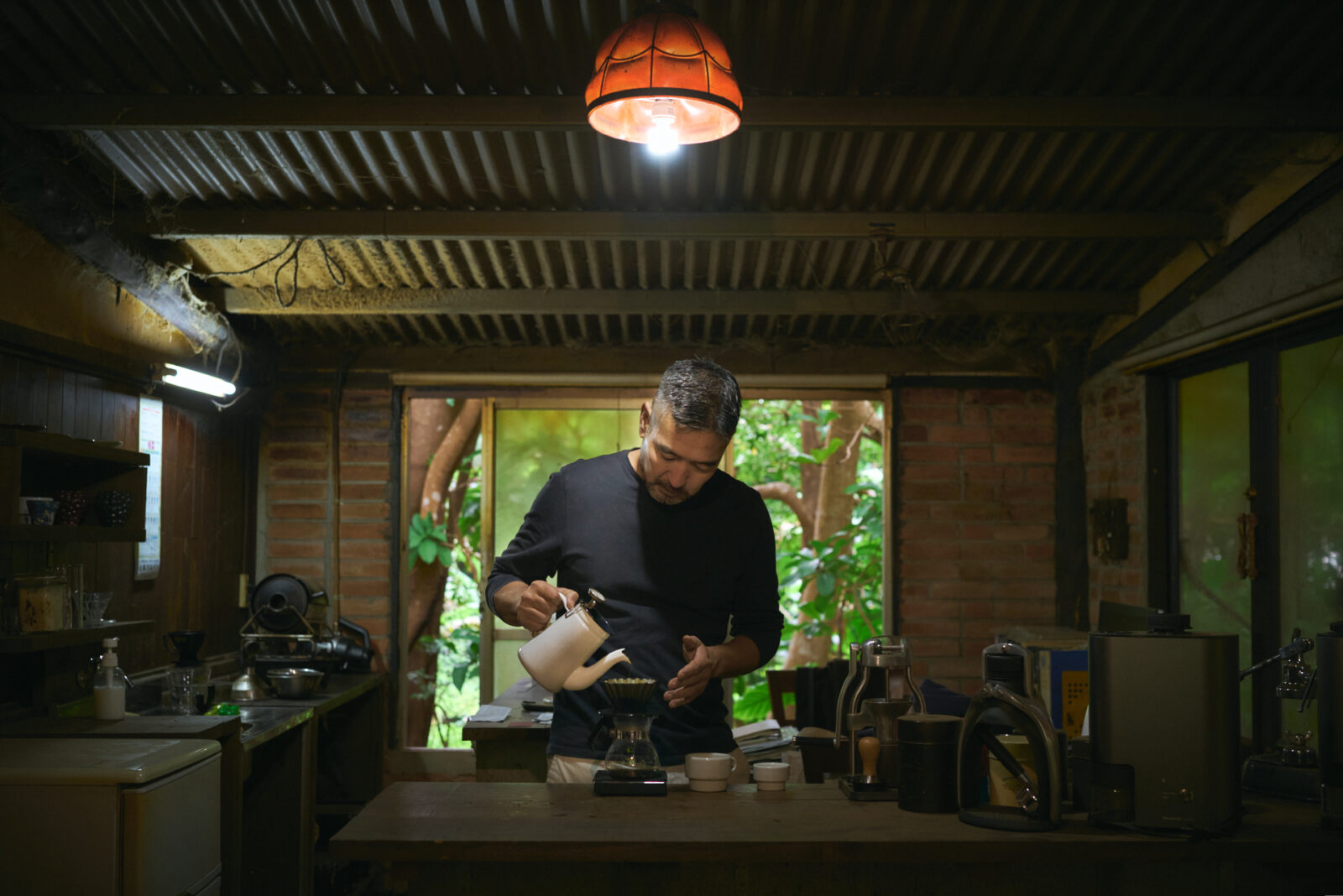
The Tokudas were not really concerned about getting the specialty coffee certification at first. Nonetheless, they decided to pursue it out of rebellion towards the people around them who said it would be impossible.
The reaction they received when they became the first farm in Japan to get the certification was much more positive than they expected and it made the headline news in the local newspaper.
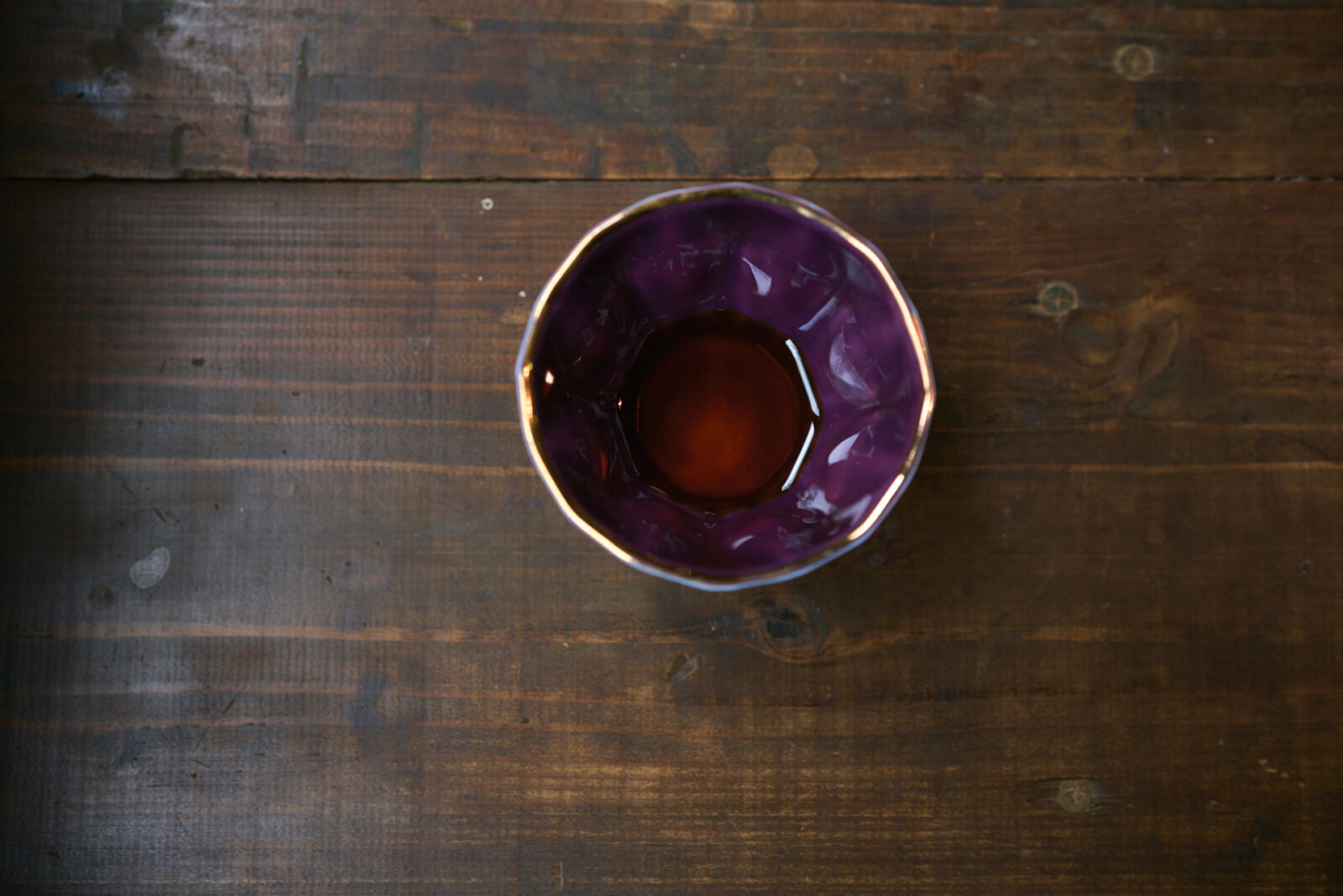
“I was honestly very happy. I think that we were able to prove that results will follow when you put your mind on something and I think that gives hope and courage to young farmers and producers who are following in our footsteps.”
“Still, this is just one of many ways to be recognized. There are other farmers in Okinawa who are making interesting coffee that have not received a specialty certification, so I know this certification isn’t everything.” (Yasujiro)
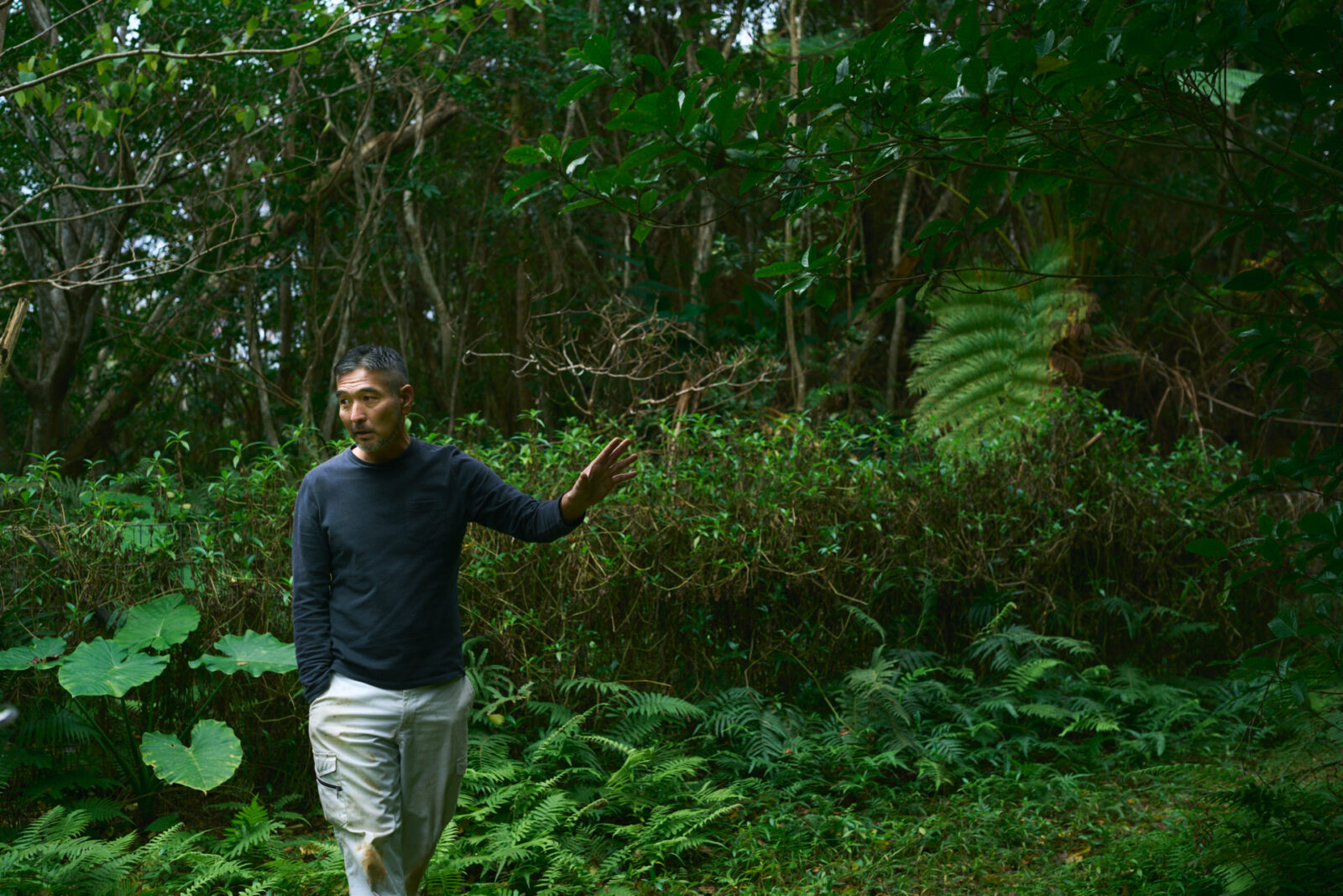
One time when they opened a booth at a local industrial festival, an old lady living in Yanbaru came to drink their coffee. When they told her that it was grown in the local land, the old lady turned towards the mountain and bowed her head as she said “itadakimasu” (I humbly receive).
Yasujiro was deeply touched by this gesture. “The purity of being able to say thank you to the land made me realize how amazing coffee can be. I vowed in my heart that it is our job to convey coffee that is honest to the land so people can experience it in a raw way.”
A drink like wine and enjoying the changes in flavor each year
When walking in the ADA FARM, one encounters shade trees such as the Oriental trema (urajino enoki, a native species to Okinawa) as well as thick banana and pepper trees that are growing freely in the bush. The air that flows through is deep, quiet and refreshing and is reminiscent of the Yanbaru forest itself.
The Ada region is rich in clean water and the water is sourced from the Ibudake mountains.
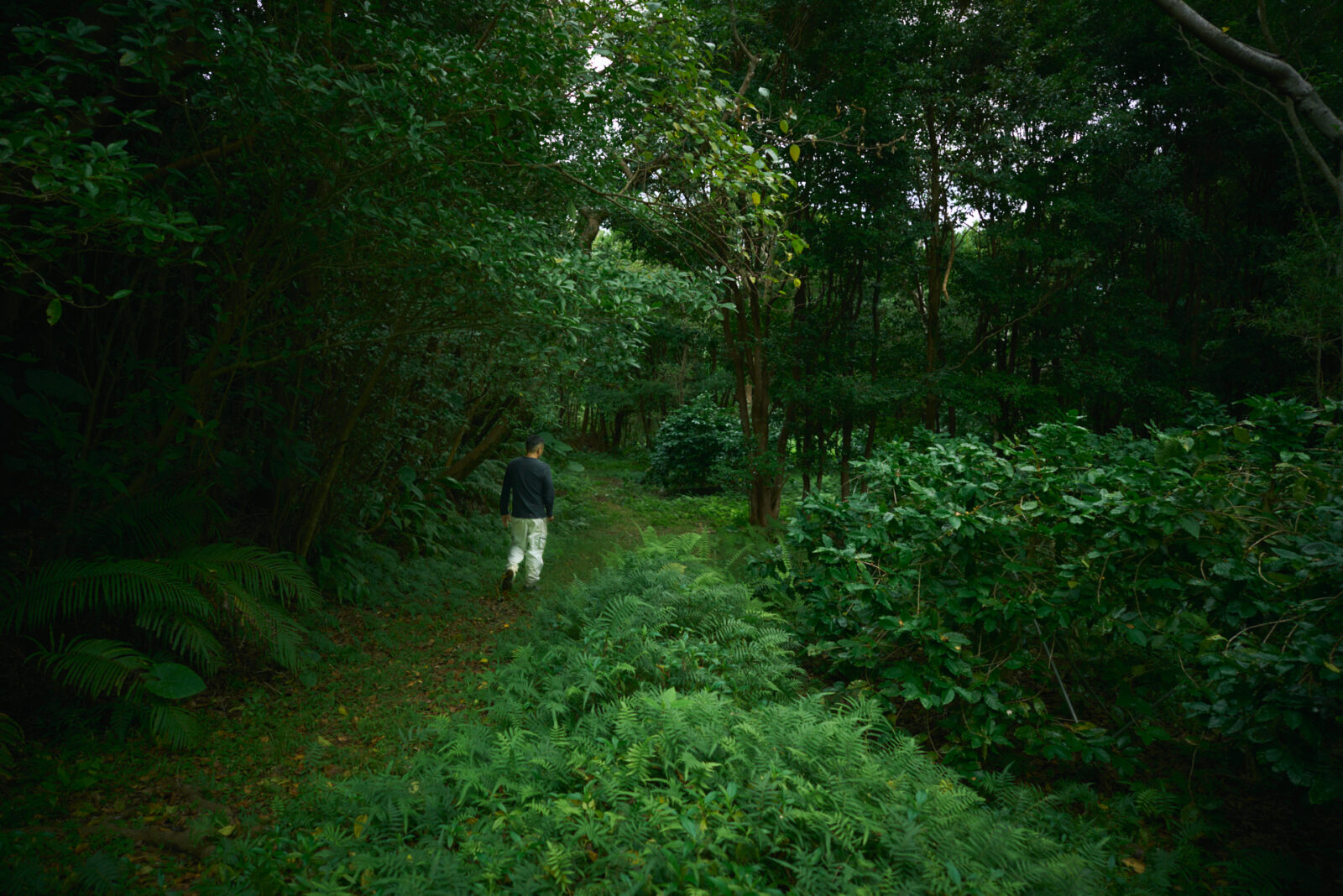
The farm has 800 coffee trees, which is the maximum that can be managed by two people.
The trees are selected from healthy seedlings and the beans are hand picked at the peak of their ripeness.
Their annual harvest target is 60 kg, but there have been years when they were only able to harvest 30 kg due to the weather conditions.
Yasujiro says that the land is by no means well suited for coffee production.
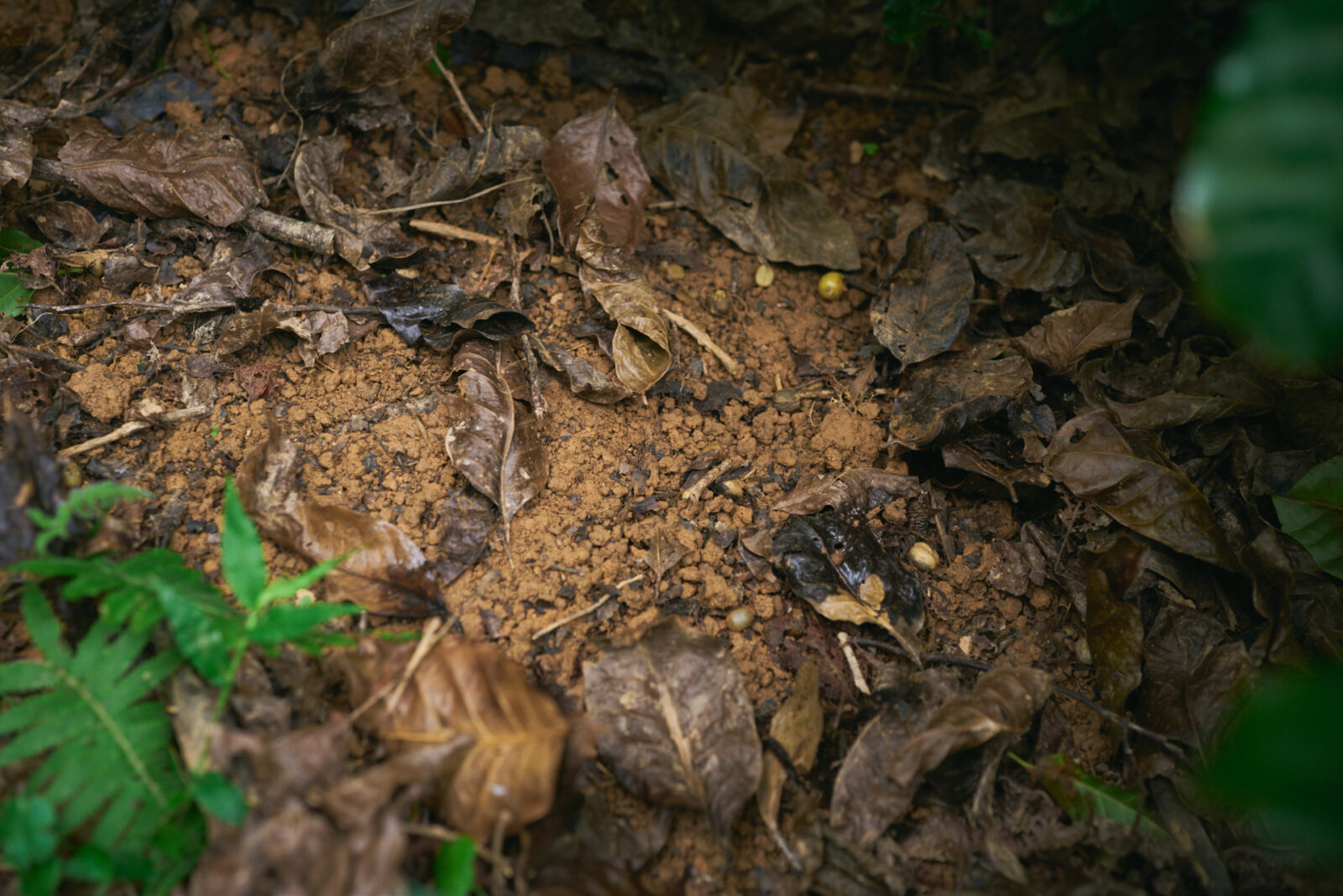
“The soil here is a red clay type of soil. It is not a great environment for microorganisms to thrive in and it is difficult for trees to spread their roots. However, if we simply improve the soil for our purposes, it would take away the very meaning of growing on this land.”
“I want to find a method that utilizes the native soil. We are learning from the mountains. I want to create a healthy ecosystem like that in the mountains and bring out the innate power of this land. I don’t want to do anything unnatural. Our goal is not to make a specific kind of coffee, rather, we are trying to make a coffee that is unique to this land.” (Yasujiro)
“Agricultural produce changes every year. The concept is similar to wine making. Of course the end quality is important, but I hope that our coffee becomes a drink that both producers and consumers enjoy by seeing and experiencing how that year’s weather and conditions affected the drink. I think this will make coffee even more interesting.” (Yuko)
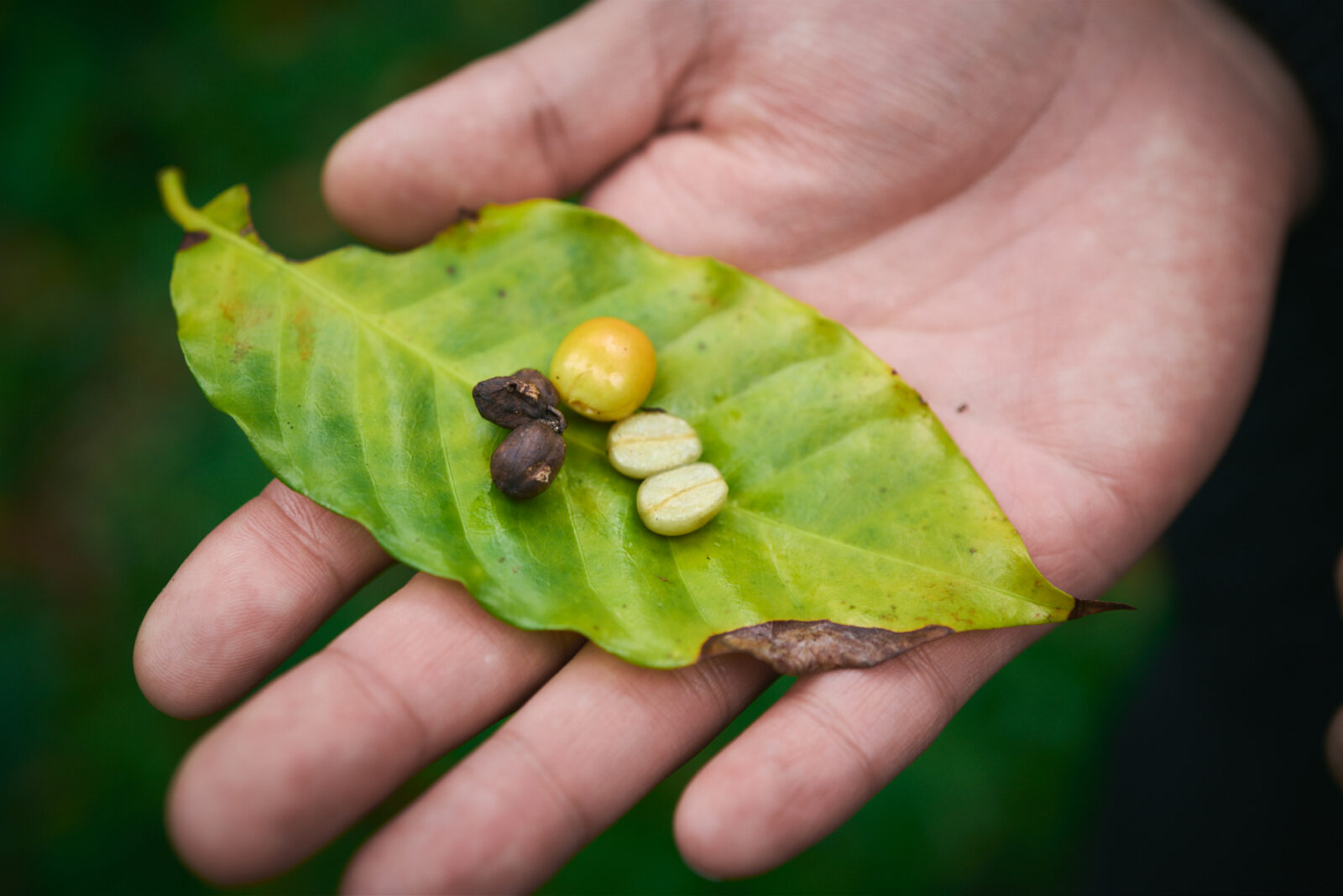
A unique processing method and two organic coffees
Okinawa’s climate comes with typhoons and strong sun rays so there is a constant source of hardship for farmers, but it is by no means all negative. Coffee beans which have withstood both the sweet and bitter climates of the year are packed with nature’s blessings and have a richness with a special strength that goes beyond the human touch.
ADA FARM currently produces two types of organic coffee that is processed in different ways.
Their first and main product is the AKATITI, which is the Okinawan word for dawn.
This coffee encapsulates all of ADA FARM’s unique climate characteristics and the coffee allows the consumer to experience the rich land of this region. To process the beans, they modified a sugarcane squeezer that is commonly used in Okinawa to make a unique pulper.
At ADA, they use a unique processing method that is not used anywhere else in the world. The pulp of the coffee fruit is rubbed into the coffee beans as it goes through the pulper.
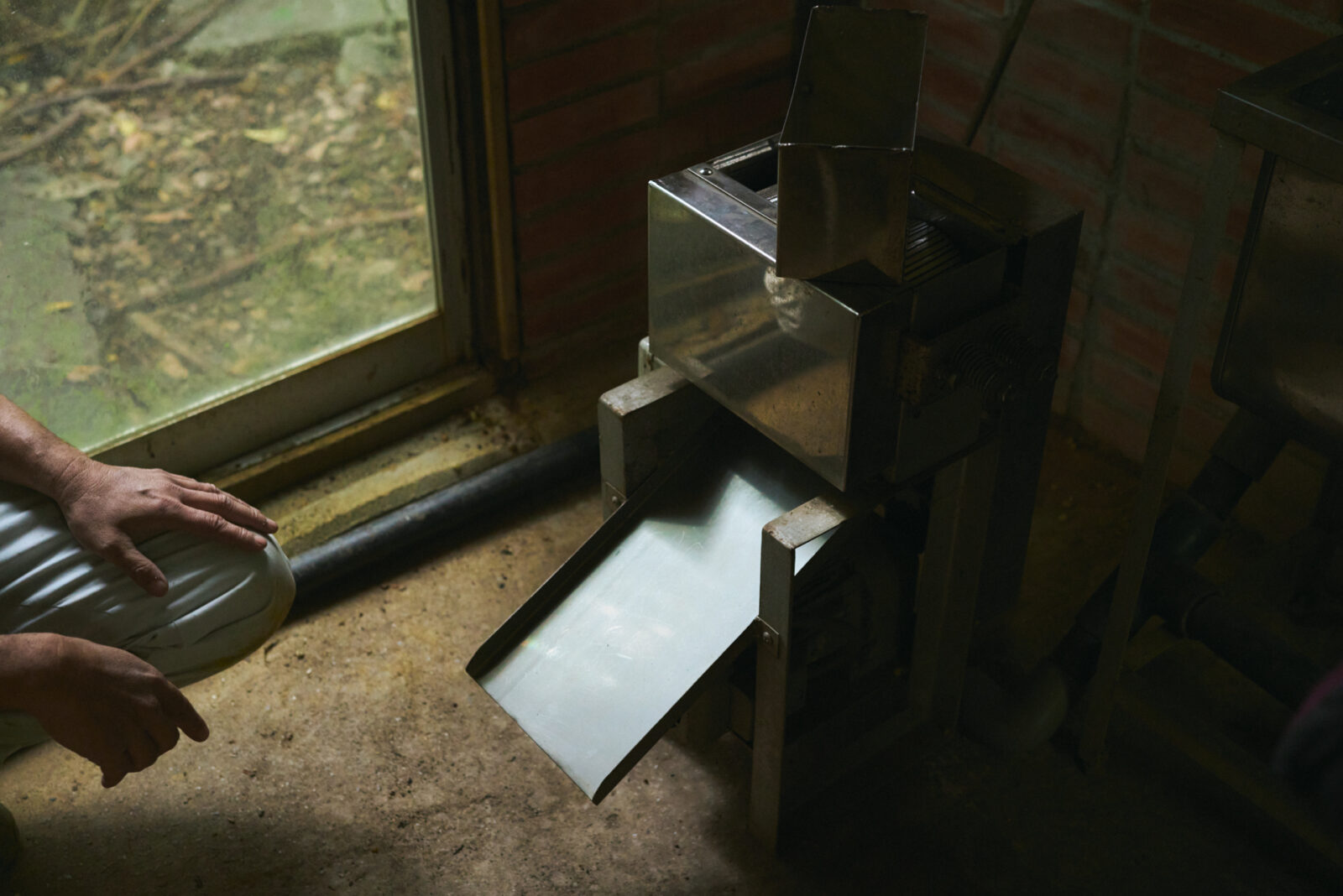
ADA FARM aims to pack as much of the diverse flavors of the coffee fruit into the beans.
“I did not look to do it in a very technical way, but I wanted to find the most natural and effortless way to process the beans in this region. In the end, it suited us well and produced good results.” (Yasujiro)
Their next coffee is the No.3, which was released in 2020. For this coffee they dry the whole coffee fruit to bring out its total effect through fermentation.
“We see our AKATITI coffee as the honor student and the No. 3 as a bit more stylish and colorful coffee.” (Yasujiro)
Currently, they are developing another new processing method. Lately there has been a growing interest in infused beans, where beans are soaked in fruits and spices. While taking a hint from this method, they are experimenting to bring out more interesting aromas through only natural ingredients and no additives.
“Even if I find the right aroma, it is difficult to reproduce it. I am excited about this new challenge, but it is really a lot of work.” (Yuko)
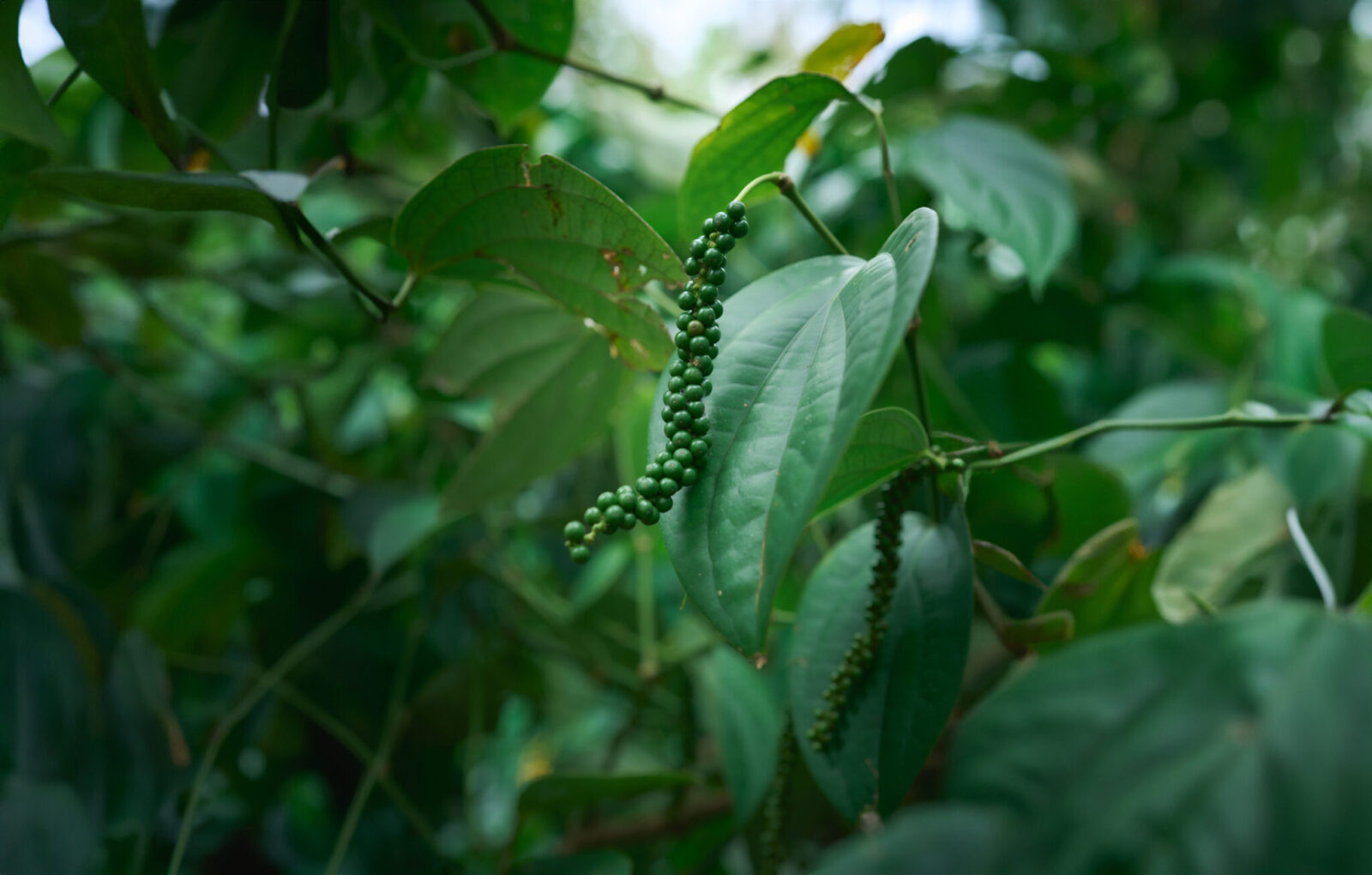
Learning from the ocean, mountains and living things to let nature take its course
ADA FARM also makes honey. Their seasonal honey and coffee flower honey are popular products that sell out immediately.
Honey bees are not native to Okinawa, but the Tokudas say the bees are their teachers who help pollinate the plants and give them information.
The information they get by observing the bees are the conditions of the mountains and the incoming weather and it guides their work on the farm. Yasujiro says that the bees and plants seem to interact and ever since he began beekeeping the aroma of the coffee flowers became stronger, as if to lure the bees toward them.
“I think that the trees, plants and insects talk to each other.” says Yasujiro.

The ocean is also their teacher. They started off by studying only the mountains when they started growing the coffee beans, but at one point he felt he reached a limit and was at a loss as to how to move forward. He decided to take a break and started enjoying time in the ocean. This opened up new sensations and ideas in his mind that were not there before.
“What you can’t make up for in the mountains, you make up for in the ocean. And vice versa. The mountains and oceans are all connected. The ocean helped me realize this and it opened up my mind.” (Yasujiro)
The Tokumas talk about how they do not want to do anything that is “disrespectful” to the plants.
If the natural conditions that seem unfavorable for the coffee tree still produce delicious fruit, they accept it as it is and carefully tend to it.
They take notes of what their senses pick up everyday, the weather, and how their crops are growing to make use of that knowledge in the future. Through such small and honest efforts, their soil matures and they grow alongside it.
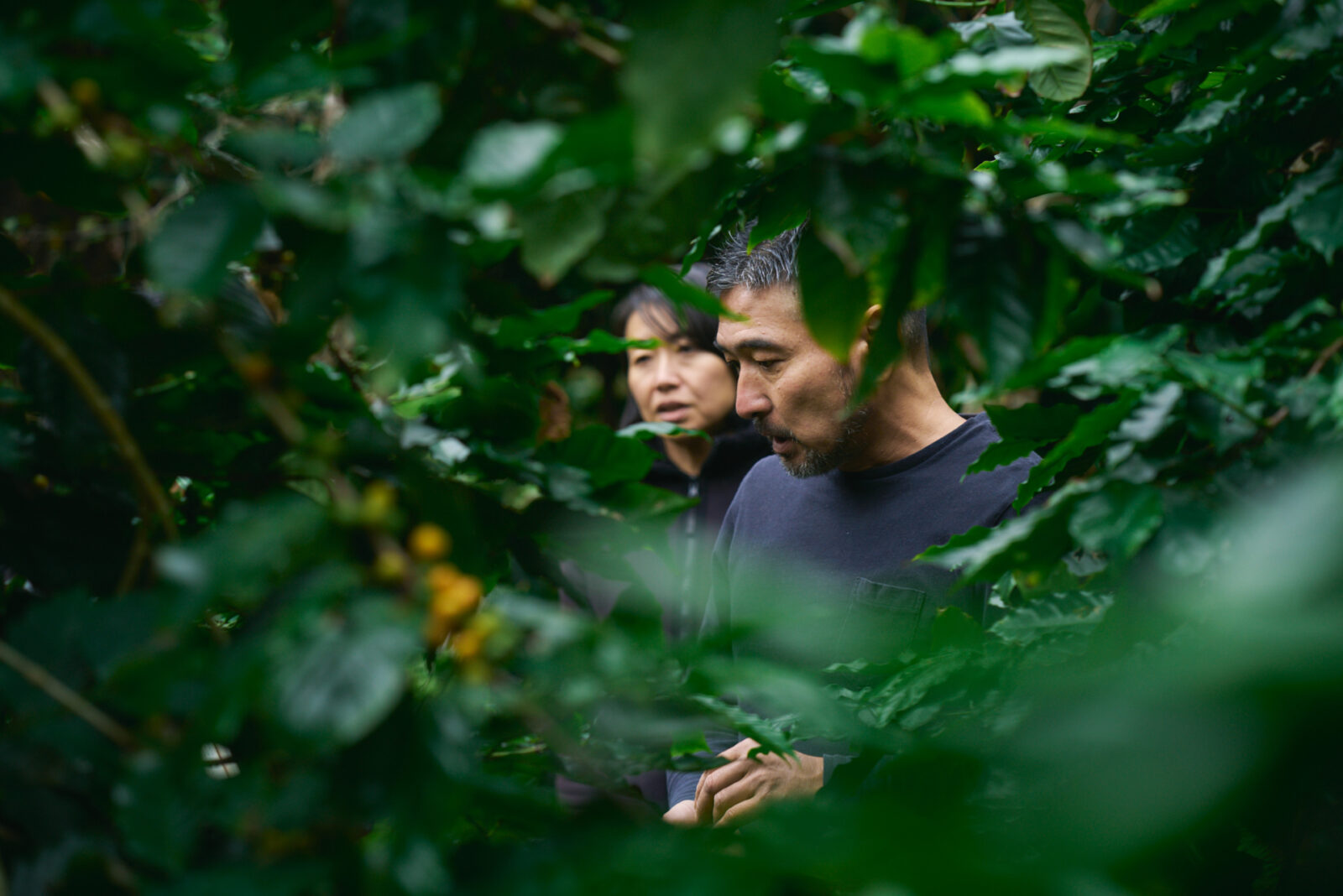
Shikohin excites people. Okinawan coffee culture that is helping everyone grow.
There are many coffee shops in Okinawa that aspire for awareness and excellence. There is also a strong network among those working in the coffee industry and a spirit of cooperation to enhance the coffee culture here.
“The passion and enthusiasm of the coffee shops is really something. They are eager to promote our coffee as a domestically made product and we also get a lot of inspiration from them.” (Yuko)
Okinawa is blessed with an environment that allows roasters and baristas who serve the coffee to directly interact with the farmers and coffee producers in a casual way. They give harsh feedback, but with love and compassion.
Even the coffee beans that the Tokumas present with confidence are met with harsh and honest feedback. When they are told that their beans have more potential, it motivates them to pursue an even higher level.
Coffee is their common language and because they are all 100% committed, they inspire each other to give their all. The Tokumas say that their community respects each other and that has created a movement that helps everyone grow, which is very rewarding.
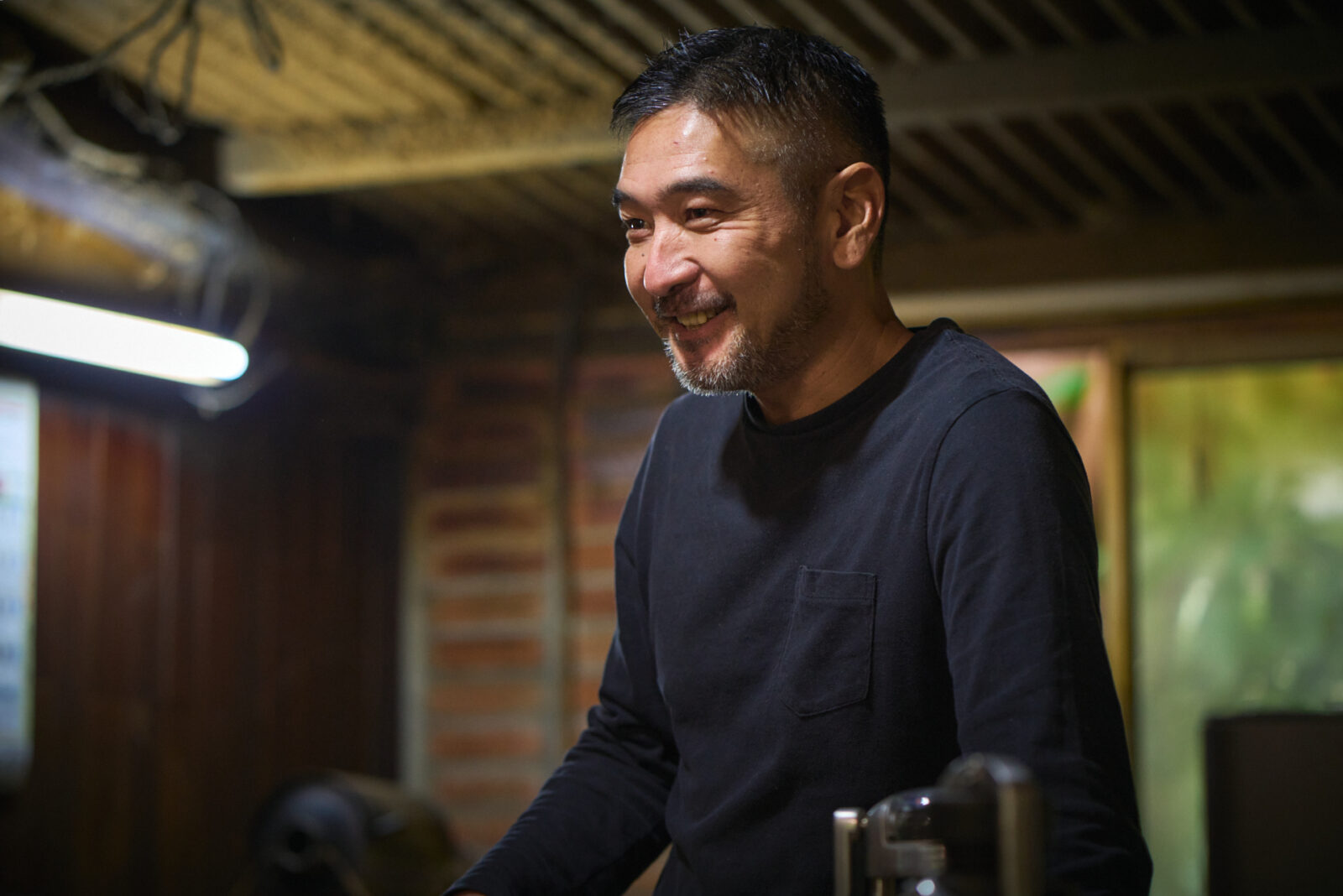
“When I first started producing coffee a part of me took it lightly because it is just a shikohin and leisure product after all. However, there are times when the experience of drinking a good coffee can move someone to tears. Once you see that, you cannot take it lightly. If it were not for the coffee culture in Okinawa, we may not be as proud of our work as we are now. It is all thanks to the people who enjoy our coffee and share their experience with us.”
“The beauty of shikohin is that it excites people and it allows us to experience a happiness that we have never experienced before. Our only desire is to deliver delicious coffee to those people who are looking forward to it. That is the only reason we do what we do.” (Yasujiro)
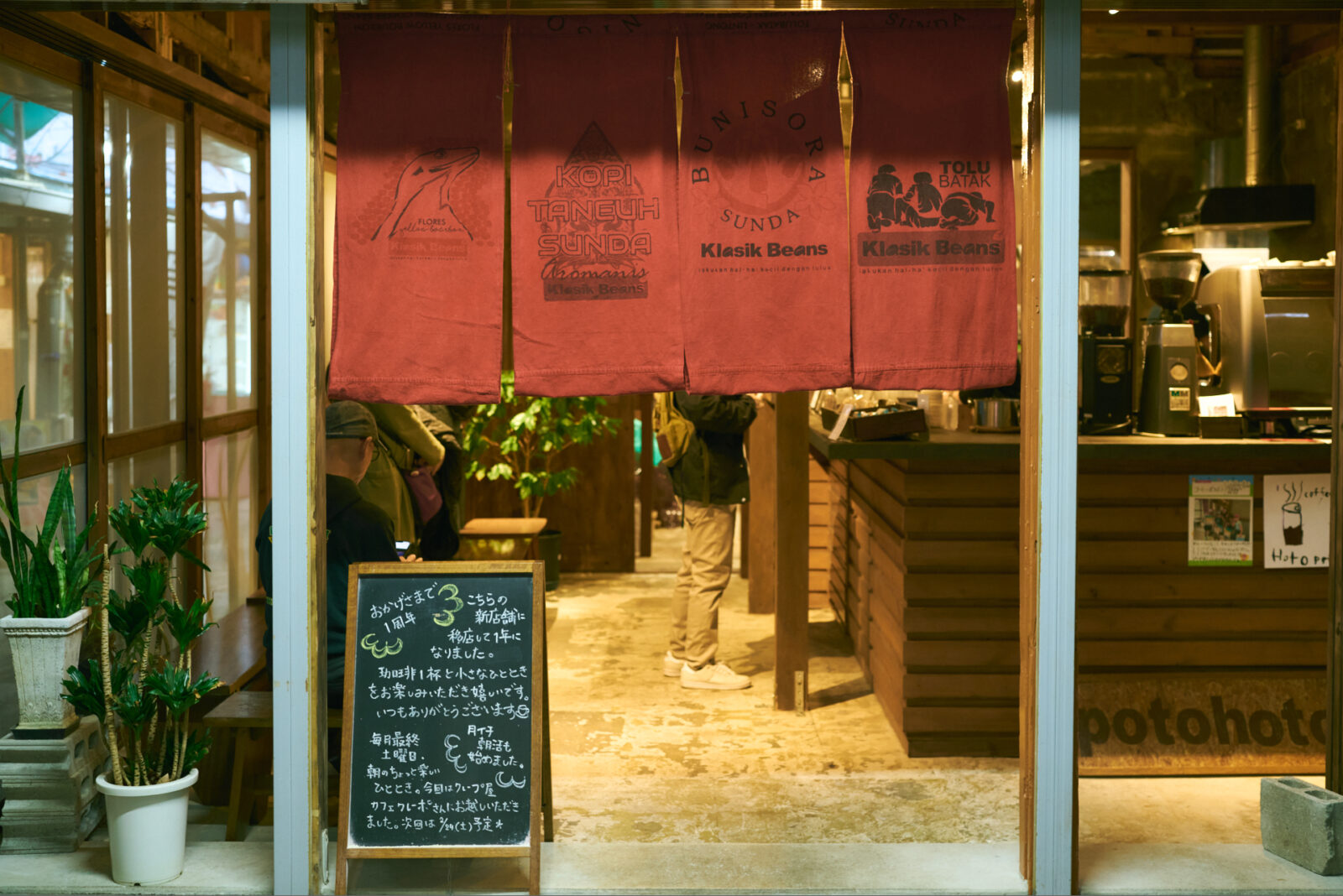
To finish off our coverage in Okinawa, we stopped by the 「COFFEE potohoto」, a coffee shop in Naha’s Sakaemachi arcade.
The owner and roaster is Satoshi Yamada, and he is the person who advised the Tokumas that their coffee AKATITI, that eventually got the speciality coffee certification and which they thought was perfect, still had more potential.
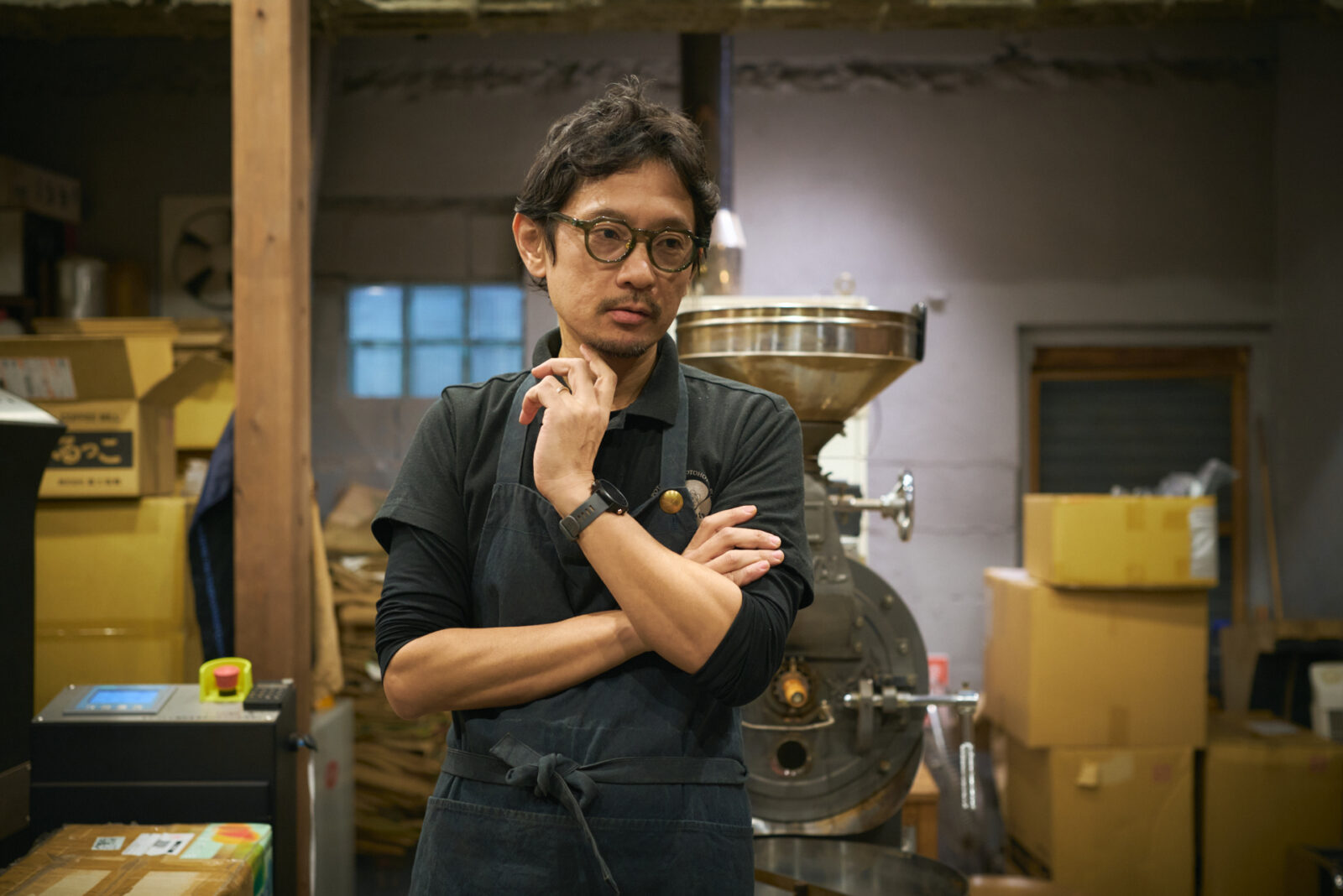
After getting such feedback from Yamada and one other individual, the Tokumas evolved the AKATITI coffee even further to create the No.3 coffee, which reflects their passion for the Yasuda region even stronger.
“ADA’s No.3 coffee is not really No. 3 but more like No. 20 in terms of how many prototypes they made. So why did they choose to name it No. 3? They enjoy spending time in the ocean, and there is a secret spot in the Yasuda beach known as No. 3. In order to reach that location, the weather conditions have to be right and so does your physical condition.”
“The beans for No. 3 also require the combination of fermentation, time, temperature and other conditions to be just right. They named their coffee after this special place in Yasuda so I feel it represents their philosophy on a deep level.”
This story reflects the Tokumas’ spirit and their commitment to making a living in this land well.

“They really love Yasuda and that is why they choose to do what they can there. It is not an easy task to do something new that no one has done before, where there are no clear or correct answers on how to do it.” (Yamada)
Working on a farm and facing the land and weather conditions head on is a challenging and lonely task, but the Tokumas are surrounded by a strong and supportive community of coffee lovers. We were moved by the passion and support in their community that encourages each other to reach new levels.
The coffee culture in Okinawa was made up of farmers who are taking on completely new challenges, and roasters and baristas who work with them to deliver us with a delicious cup of a one of a kind coffee experience.
Translation : Sophia Swanson
All articles on our feature Indulgence and Explore
Advisor to corporations, and local governments on promoting local tourism. Published work includes, “Aomori & Hakodate Travel Book” (Daimond), “San’in Travel: Craft and Food Tour” (Mynavi), “A Drunkard’s Travel Guide: Sake, Snacks, and Tableware Tour” (Mynavi). Her life work is to explore towns in her travels, drink at different shops and visit the workshops of different crafts. Interests include tea, the Jomon period, architecture, and fermented foods.
Editor. Born and raised in Kagoshima, the birthplace of Japanese tea. Worked for Impress, Inc. and Huffington Post Japan and has been involved in the launch and management of media after becoming independent. Does editing, writing, and content planning/production.
